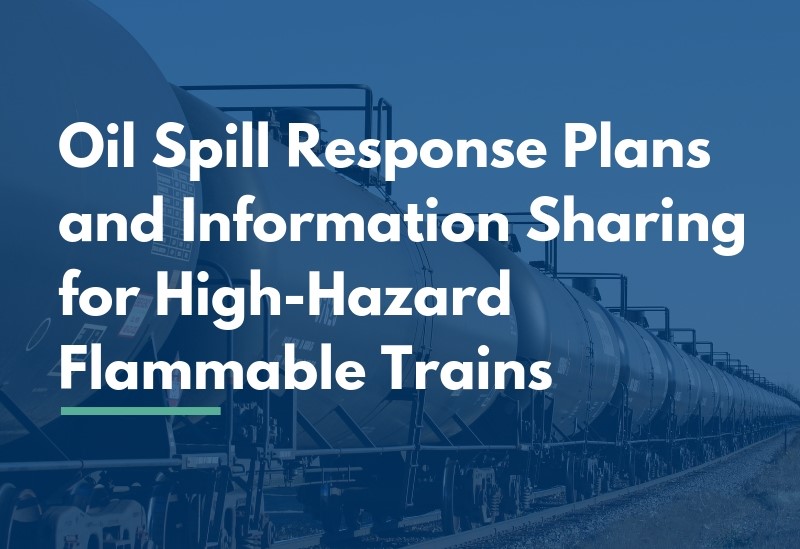Oil Spill Response Plans and Information Sharing for High-Hazard Flammable Trains
Overview
The U.S. Department of Transportation's Pipeline and Hazardous Materials Safety Administration (PHMSA), in coordination with the Federal Railroad Administration (FRA), issued Oil Spill Response Plans and Information Sharing for High-Hazard Flammable Trains (HHFTs), a final rule that improves the oil spill response readiness and reduces the effects of rail incidents involving petroleum oil and certain high-hazard flammable trains (HHFTs).
Three Components of the OSRP Final Rule
Comprehensive Oil Spill Response Plans (COSRPs)
The final rule requires rail carriers to transport petroleum oil in a block of 20 or more loaded tank cars and trains that have a total of 35 loaded petroleum rail cars. CORSPs are plans for responding to a worst-case discharge of oil (300,000 gallons or 15% of lading) or to the substantial threat of discharge. Plans must be submitted and approved by PHMSA.
High-Hazard Flammable Trains (HHFTs) Information Sharing
Rail Carriers transporting HHFTs must notify State and Tribal Emergency Response Commissions and other state-designated entities to improve community preparedness; Provide a reasonable estimate of the number of HHFTs expected to travel through each county in state per week and intended routes; Describe materials being shipped; Provide a railroad point of contact; and Provide notification of changes in volumes greater than 25%.
Initial Boiling Point Test
The final rule incorporates by reference the "Standard Test Method for Determination of Light Hydrocarbons in Stabilized Crude Oils by Gas Chromatography" (ASTM D7900) related to initial boiling point for crude oils containing light hydrocarbons as an acceptable testing alternative to the boiling point tests specified in the current regulations (Part 173.121). Inclusion of this additional boiling point test option provides regulatory flexibility and promotes enhanced safety in transport through accurate Packing Group (PG) assignment.
For more details about the rule's requirements, read the full text of the rule located in the related links section to the right of this page.

